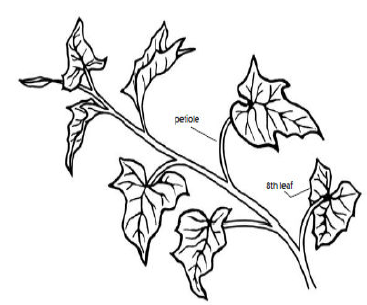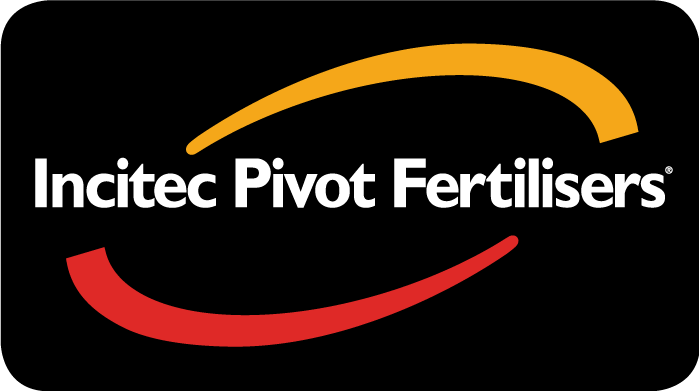Searching for improved sweet potato nutrition
Dec 10, 2018Sweet potatoes have been earmarked for a new ENTEC® fertiliser trial in Bundaberg this season. Rob Dwyer, Incitec Pivot Fertilisers’ Agronomist – Tropical Systems, is excited about the potential for ENTEC to reduce nitrogen losses, lift sweet potato yields and improve quality.
“We’ve chosen sweet potatoes for this research because the crop is booming in popularity and it seems particularly suited to ENTEC because of its growth habit,” he said.
Mr Dwyer explained that sweet potatoes can be difficult to fertilise effectively through the later stages of their growth because the runners effectively close the paddock to tractors.
“This means large amounts of nitrogen need to be applied in the basal application and then either early in the growth of the crop, or the nutrients have to be fertigated,” he said.
“Putting on an excess of nitrogen upfront is a risky strategy, because it only takes a single downpour at the wrong time for substantial amounts of that nitrogen to be lost to leaching and denitrification.”
ENTEC works by stabilising the applied nitrogen fertiliser in the ammonium form, rather than allowing its rapid conversion to nitrate nitrogen in the soil.
While both nitrate nitrogen and ammonium nitrogen can be used by the crop, nitrate nitrogen is prone to leaching and run-off losses because it moves readily with water.
Nitrate nitrogen is also at risk of denitrification losses. This can happen in saturated or waterlogged soils when soil bacteria survive by consuming the oxygen in nitrate nitrogen.
“As we’ve seen in sugar cane, no matter what happens after you’ve applied your fertiliser, it is better protected with ENTEC,” Mr Dwyer said.
Incitec Pivot Fertilisers’ sweet potato trial will be established in the Bundaberg region early next year by Chris Themsen from independent agricultural research company, Peracto.
Bundaberg is the centre of sweet potato production in Australia and is known for its sandy soils.
“We believe ENTEC will have a fit in many sweet potato growing areas, but it will be particularly valuable for crops that are grown on lighter textured soils where leaching losses are known to be a problem and where a high proportion of the total nitrogen is applied in the basal treatment,” Mr Dwyer said.
This trial will compare two basal fertiliser treatments – Nitrophoska® Special and a custom blend – with and without ENTEC.
Grower standard fertiliser practice will be used for the remainder of the season with the treatments consistent across all plots.
The trial will measure the yield and quality achieved from the different fertiliser treatments.
Growers interested in the potential for ENTEC are also invited to trial the treatment in their own crops with a simple strip trial.
“Using a strip of ENTEC treated fertiliser along one side, or even half of the paddock, allows you to compare the ENTEC directly with standard fertiliser practices,” Mr Dwyer said.
“This is a great way for growers to see how ENTEC performs on their own soils.
“ENTEC has the potential to give sweet potato growers a way to better match nitrogen supply with crop demand and operate more sustainably by reducing the potential for losses of nitrogen.
“We look forward to sharing the results of our new field trial with growers and agronomists.”
For more information, contact Rob Dwyer on 0428 111 471 or rob.dwyer@incitecpivot.com.au.
- Arrange an ‘E33’ soil test before planting. Soil test results will help determine the best basal fertiliser blend for your crop.
- Consider Nitrophoska Special for the basal fertiliser application. With 12% nitrogen, 5.2% phosphorus, 14% potassium, 8% sulphur and some calcium, magnesium boron and zinc, it provides a good base nutrition for sweet potatoes.
- A fertiliser blend can be customised to meet the needs of your specific soil and crop requirements.
- Any nitrogen fertilisers used should be adequately incorporated into the soil to protect against volatilisation loss, either with cultivation or irrigation.
- Consider ENTEC for your basal fertiliser blend to provide several weeks’ protection against denitrification and leaching losses.
- Sweet potatoes have a high requirement for boron. Deficiency causes brown necrotic areas in the flesh of the root. If boron deficiency is suspected, additional boron may be needed in the fertiliser blend or as a foliar spray.
- Tissue testing with a ‘PT4’ test at around eight weeks post emergence can be used as a guide to supplementary fertiliser applications. Sample the eighth leaf back from the vine growing point, including the unfolded leaf at the tip of the vine.
- Fertilisers can be sidedressed just before vines cover over or fertigated at intervals a few weeks after storage root initiation.
- The Nutrient Advantage® laboratory can provide timely, accurate and accredited results that allow you to make the right decisions on fertilisers for a quality crop.

When tissue testing sweet potatoes, sample the eighth leaf back from the vine’s growing point, including the unfolded leaf at the tip of the vine.
